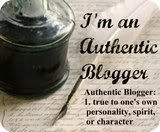It's amazing what images can do to make something that seems so far away much more immediate. We saw it during the Iran election (which, sadly, seems to have been ignored by too many people, and being mostly ignored by almost everybody now). But it's amazing how they can make history come alive as well.
I'm currently watching part one of the National Geographic Channel special called "Apocalypse: Second World War" and it's fascinating stuff. I'm recording the other 5 hours of this 6-part series, because I don't want to spend all afternoon watching it, but I will definitely be watching it over the next week or two. Here's the trailer for it:
What's amazing about this series, at least so far, is all of the video being used, most of which I have never seen. It's all in colour, kind of washed out so I can't tell if it's colourized or if it's just old colour footage. According to the trailer, it's restored, but I don't know if that just means "cleaned up" or if it also means they added the colour.
I certainly wouldn't call myself an expert on World War II, but I know enough that most television specials on the war don't really tell me anything new. That may very well be the case with this one as well.
But it's the video imagery that is making this arresting despite not telling me anything new (at least so far). Photography can bring the war home to you in brutal detail, but when you see the movies taken in this period, that's what's really affecting. When episode one talks about the bombing of Warsaw, and the reaction from the Allies, one of the videos is how the civilian population of Paris was preparing for what they believed to be imminent poison gas attack. They showed some of the air raid drills and various civilians practicing putting on their gas masks. But then they show a couple of children twisting their heads away or crying while the adults try to get their gas masks on them. It's very affecting.
It's just fascinating, and a reminder that no matter how much we read about a subject, especially in history, the effective use of video and photography can make what you're learning about even more absorbing. And you're more likely to keep it with you, too.
Note: Wow, I was looking for the National Geographic Channel web site that talked about this show, and just discovered that it's not on the US version of the channel!
Anyway, watching this in HD just adds to the fascination.
September 6, 2009
Subscribe to:
Post Comments (Atom)















My sister in law and her husband are both history profs in Michigan. Jason's specialty is modern history of Germany, which of course encompasses WWII and Nazis (always creepy that he does get Nazi fans in his classes sometimes). Jason loves to use video clips and movies to keep his students interest and make history come alive for them (he's also a huge film fanatic).
ReplyDeleteAs an aside, I have taken to giving Jason gift certificates for Christmas and his birthday; somehow looking at his Amazon.com wish list full of books about Nazis doesn't fill me with a festive spirit!
LOL! I don't blame you a bit, Sara. :)
ReplyDeleteIt's cool that Jason does that in his class, though. We used to watch the occasional newsreel and film like that, but overall, it was mostly just textbooks.
Don't get me wrong. As you know, I *love* books. But there's just something about video that brings it home.
Incidentally, I'd love to hear what a history prof says about how the study of history (especially military history) appears to be dying. Or at least completely transforming.
I feel another blog post coming on! Though probably not tonight LOL.
I can't speak for either of those two history profs, but I did hear them talking about their department this past summer when we visited. Due to the economy, the demand for history profs is down (and fewer kids are majoring in history). They said a lot of kids are still majoring in social studies, as there is always a market for that.
ReplyDeleteI really can't speak to the military history thing at all, but if I get to see them at Thanksgiving I'll try to remember to ask Jason. (My SIL's specialty is early modern Europe, Spain, so much less war there... she did her dissertation on guardianship, I believe).
Having seen what they went through to get the history PhDs, I would never want to do it myself, but I have to admit that they have the coolest jobs in the world. The "have" to go to Europe every summer for research, write books, and hang out in a college classroom all year. Pretty cool!
Yeah, I fantasized about doing that when I graduated from college with my History degree too. And look where I am now! I did apply to get into the Master's program at UBC, but they turned me down. That was lucky in a couple of ways.
ReplyDeleteFirst, I didn't realize that our staff tuition waiver doesn't cover graduate studies (which is a rip-off). Secondly, after interacting with academics for ten years as part of my job, I wouldn't necessarily want to join them. I wouldn't be able to deal with the politics and the egos that always seem to get involved.
I'm not saying your two are like that, but I'm almost positive that they have to *deal* with people like that. It must get frustrating for them sometimes. There are definitely some good people in our faculty, though, and it makes me wonder how they put up with it all too.
But then again, trips to Europe for research could be considered a nice perk. :)